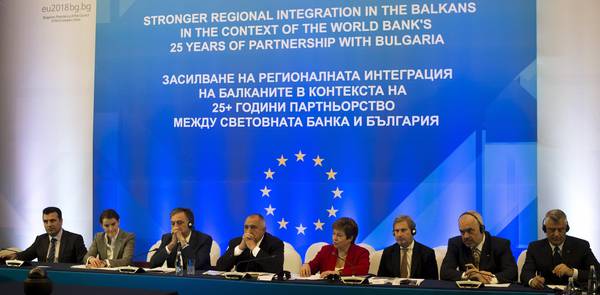The Balkans are not our past, but our future
Gigi Riva, Sarajevo is ''the centre of the world''
16 February, 20:57It is in the former Yugoslavia that the principles of tolerance and coexistence started to decline. The sequence of secessions from Belgrade was a bad example. We have just witnessed the separatist movements, for example, in Catalonia. But similar movements can be found in Belgium among the Flemish, who would like to separate themselves from the Walloons, in Scotland, that perhaps will go to a second referendum in order to leave the United Kingdom. Throughout the Alpine area, secessionist movements have arisen in France (Savoy), Austria (Carinthia) and Northern Italy, especially in the secessionist era of the Lega led by Bossi. A feeling which is far from having disappeared, despite the nationalist stance of the new leader Matteo Salvini.
In the rest of Europe, we can hear today the same watchwords that we used to hear at the time of the implosion of the country ruled by Tito, such as ''we are giving too much money to the central government compared to what they reinvest in our territory''. Just like it happened to Belgrade, Rome, Vienna, Madrid, Brussels, London, Paris became ''thiefs''. So we can say that, in recent times, the secessionism of the rich has prevailed, which is a 'close relative' of selfishness and the opposite of solidarity and redistribution to poorer places, a principle which has ruled after the Second World War until the end of last century.
The economic crisis, which began in 2008 and that we are tackling right now, has increased the desire to find shelter in your own clan. The fears unleashed by globalization have exacerbated the dualism between ''us'' and ''them'', that is foreigners. As if only within the 'ethnos' we could be protected from the disorientation felt towards a world which suddenly became small and too competitive. Foreigners, especially migrants, have become the scapegoat to blame for all, especially since the phenomenon has grown and become difficult to manage.
They have also become an excellent propaganda tool for those ''managers of fear'' who take advantage of the issue to gain ground in the polls.
Also the so-called ''conflict between civilizations'' sprang in the nineties on the eastern shore of the Adriatic Sea. Catholic Croats against Orthodox Serbs. Catholic Croats against Muslim Bosniaks. Orthodox Serbs against Muslim Bosniaks. All of them convinced they were fighting their own ''holy war''. We always remember September 11 in New York. We as Europeans also had our 9/11, eight years earlier. On November 9, 1993, the Croats broke down the Mostar bridge to raze the Muslim presence in a land they consider their own. In Bosnia was established a battalion made up of mujaheddin, foreign fighters who arrived there to protect the threatened co-religionists (coreligionists who were mostly atheists).
The Balkans are not our past, but our future. For this reason we should analyse them with greater care and without considering them - as usual - as a ''peripheral land'', but a place where historic events took place, becoming the spark that ignited the First World War. As the great writer Dzevad Karahasan taught us, Sarajevo is ''the centre of the world''. (ANSA).














